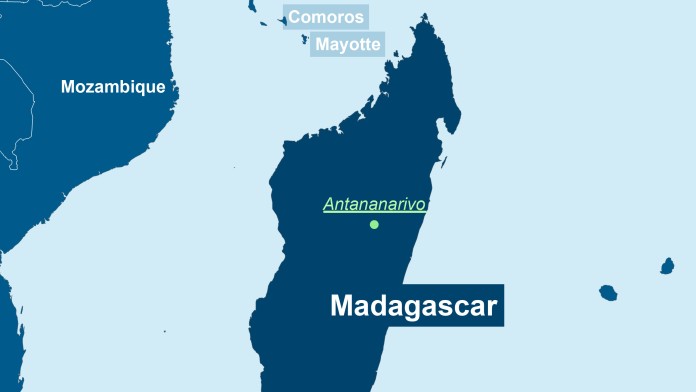
Madagascar is renowned for being one of nature’s paradises. There are many animal and plant species here that are not found anywhere else, which means there is high potential for tourism on this fourth-largest island in the world. The country is also rich in raw materials such as nickel, manganese, copper and gold. In addition, 80% of the vanilla consumed worldwide originates from Madagascar. Politically, the country has been able to stabilise itself. After a five-year crisis, a democratically elected government emerged in 2014. Although the state is centralised, the more than 1,500 municipalities were able to retain their democratic legitimacy even during the crisis.
As a result of the political stabilisation, the economy initially recovered slowly, but the recent crises, in particular the COVID-19 pandemic, wiped out this progress. As a result, three out of four people in Madagascar still live below the poverty line. More than half of the approximately 25 million inhabitants suffer from hunger. It is important to improve living conditions quickly so that political stability continues. Climate change is manifesting itself in a prolonged drought in the south of the country, which is driving many people to flee to the north. In view of poverty, the pressure on natural resources is high and continues to increase. Large parts of the country’s natural rainforests were victims of deforestation. Rare animal species such as lemurs or turtles are endangered by poaching. Many of the soils used for agriculture are degraded and threatened by erosion.
On behalf of the German Federal Government, KfW is supporting Madagascar in several areas:
During the political crisis, the municipalities have proven themselves to be stable institutions. To support decentralisation initiated by the government, KfW is financing the expansion of roads and schools as well as access to clean water and sanitary facilities on behalf of the German Federal Government.
Not even a fifth of the population has a power connection. KfW is promoting the supply of renewable energy to rural regions, for which there is great potential on the island.
It is also providing funds to Accès Banque Madagascar to help it expand its portfolio and drive forward digitalisation. This enables the bank to grant low-interest loans to micro, small and medium-sized enterprises.
So far, the 123 protected areas in the country have not been able to stop the dramatic loss of the rainforest and the – mostly very rare – animal species. The intent is to trigger change. KfW is equipping the organisation responsible for many of the parks with funds, knowledge and infrastructure. KfW also supports reforestation with timber and biological measures to protect against erosion. Thanks in particular to its holistic landscape approach, the project also pursues the protection of the environment and biodiversity as important objectives and thus makes a significant contribution to the implementation of the Convention on Biological Diversity. KfW’s involvement makes a significant contribution to the economic development and securing of Madagascar’s natural resources, preserving the natural paradise.
KfW Development Bank
069 74 31-42 60